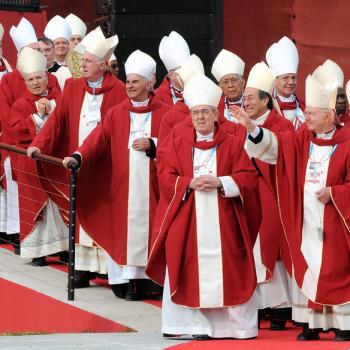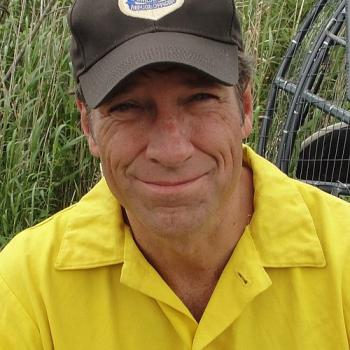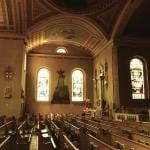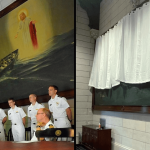Political theorist Patrick J. Deneen notes two different and conflict schools among Roman Catholic conservatives: one believes that Catholic Christianity is compatible with American democracy, with its ideals of freedom, individual rights, free markets, etc. The other faction believes that all of these American ideals grow out of a philosophical liberalism that is incompatible with Catholic Christianity.
Read Prof. Deneen’s account, excerpted after the jump. Can these arguments have resonance for non-Catholic Christians? Or non-Christian conservatives? Are American Christians too wedded to “Americanism”? Or would the anti-American line of thought yield a political system that is far worse?
From Patrick J. Deneen, A Catholic Showdown Worth Watching | The American Conservative:
On the one side one finds an older American tradition of orthodox Catholicism as it has developed in the nation since the mid-twentieth century. It is closely aligned to the work of the Jesuit theologian John Courtney Murray, and its most visible proponent today is George Weigel, who has inherited the mantle from Richard John Neuhaus and Michael Novak. Its intellectual home remains the journal founded by Neuhaus, First Things. Among its number can be counted thinkers like Robert George, Hadley Arkes, Robert Royal, and—if somewhat quirkier than these others—Peter Lawler.
Its basic positions align closely to the arguments developed by John Courtney Murray and others. Essentially, there is no fundamental contradiction between liberal democracy and Catholicism. Liberal democracy is, or at its best can be, a tolerant home for Catholics, one that acknowledges contributions of the Catholic tradition and is leavened by its moral commitments. While liberalism alone can be brittle and thin—its stated neutrality can leave it awash in relativism and indifferentism—it is deepened and rendered more sustainable by the Catholic presence. Murray went so far as to argue that America is in fact more Catholic than even its Protestant founders realized—that they availed themselves unknowingly of a longer and deeper tradition of natural law that undergirded the thinner liberal commitments of the American founding. The Founders “built better than they knew,” and so it is Catholics like Orestes Brownson and Murray, and not liberal lions like John Locke or Thomas Jefferson, who have better articulated and today defends the American project.
Proponents of this position argue that America was well-founded and took a wrong turn in the late-19th century with the embrace of Progressivism (this intellectual position, closely associated with intellectuals at Claremont McKenna College and Hillsdale College, was briefly popularized by Glenn Beck. It has been developed not especially by Catholics, but by students of Leo Strauss, but has been widely embraced by Catholics of this school). The task, then, is restore the basic principles of the American founding—limited government in which the social and moral mores largely arising from the familial and social sphere orient people toward well-ordered and moral lives. This position especially stresses a commitment to the pro-life position and a defense of marriage, and is generally accepting of a more laissez-faire economic position. It supports a vigorous foreign policy and embraces a close alignment between Catholicism and Americanism. It has become closely aligned with the neoconservative wing of the Republican Party.
On the other side is arrayed what might be characterized as a more radical Catholicism. Its main intellectual heroes are the philosopher Alasdair MacIntyre and the theologian David L. Schindler (brilliantly profiled in the pages of TAC by Jeremy Beer). These two figures write in arcane and sometimes impenetrable prose, and their position lacks comparably visible popularizers such as Neuhaus, Novak, and Weigel. Its intellectual home—not surprisingly—is the less-accessible journal Communio. An occasional popularizer (though not always in strictly theological terms) has been TAC author Rod Dreher. A number of its sympathizers—less well-known—are theologians, some of whom have published in more popular outlets or accessible books, such as Michael Baxter, William T. Cavanaugh, and John Medaille. Among its rising stars include the theologian C.C. Pecknold of Catholic University and Andrew Haines, who founded its online home, Ethika Politika. From time to time I have been counted among its number.
The “radical” school rejects the view that Catholicism and liberal democracy are fundamentally compatible. Rather, liberalism cannot be understood to be merely neutral and ultimately tolerant toward (and even potentially benefitting from) Catholicism. Rather, liberalism is premised on a contrary view of human nature (and even a competing theology) to Catholicism. Liberalism holds that human beings are essentially separate, sovereign selves who will cooperate based upon grounds of utility. According to this view, liberalism is not a “shell” philosophy that allows a thousand flowers to bloom. Rather, liberalism is constituted by a substantive set of philosophical commitments that are deeply contrary to the basic beliefs of Catholicism, among which are the belief that we are by nature relational, social and political creatures; that social units like the family, community and Church are “natural,” not merely the result of individuals contracting temporary arrangements; that liberty is not a condition in which we experience the absence of constraint, but the exercise of self-limitation; and that both the “social” realm and the economic realm must be governed by a thick set of moral norms, above all, self-limitation and virtue.
Because of these positions, the “radical” position—while similarly committed to the pro-life, pro-marriage teachings of the Church—is deeply critical of contemporary arrangements of market capitalism, is deeply suspicious of America’s imperial ambitions, and wary of the basic premises of liberal government. It is comfortable with neither party, and holds that the basic political division in America merely represents two iterations of liberalism—the pursuit of individual autonomy in either the social/personal sphere (liberalism) or the economic realm (“conservatism”—better designated as market liberalism). Because America was founded as a liberal nation, “radical” Catholicism tends to view America as a deeply flawed project, and fears that the anthropological falsehood at the heart of the American founding is leading inexorably to civilizational catastrophe. It wavers between a defensive posture, encouraging the creation of small moral communities that exist apart from society—what Rod Dreher, following Alasdair MacIntyre, has dubbed “the Benedict Option”—and, occasionally, a more proactive posture that hopes for the conversion of the nation to a fundamentally different and truer philosophy and theology.















